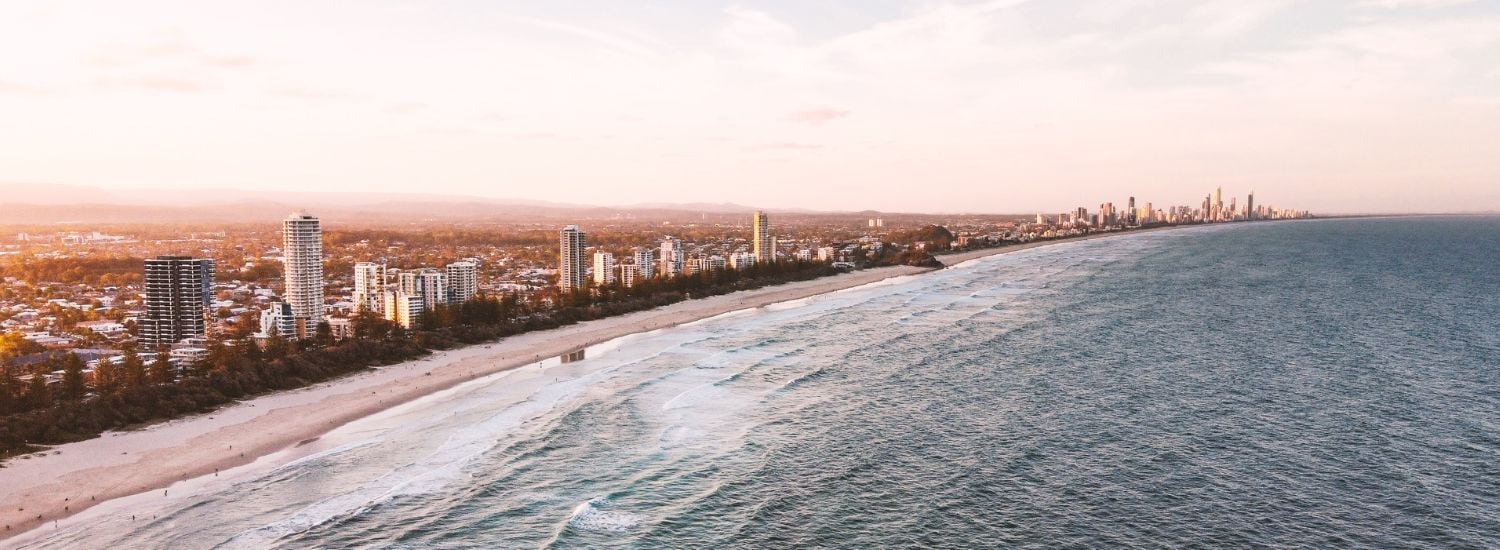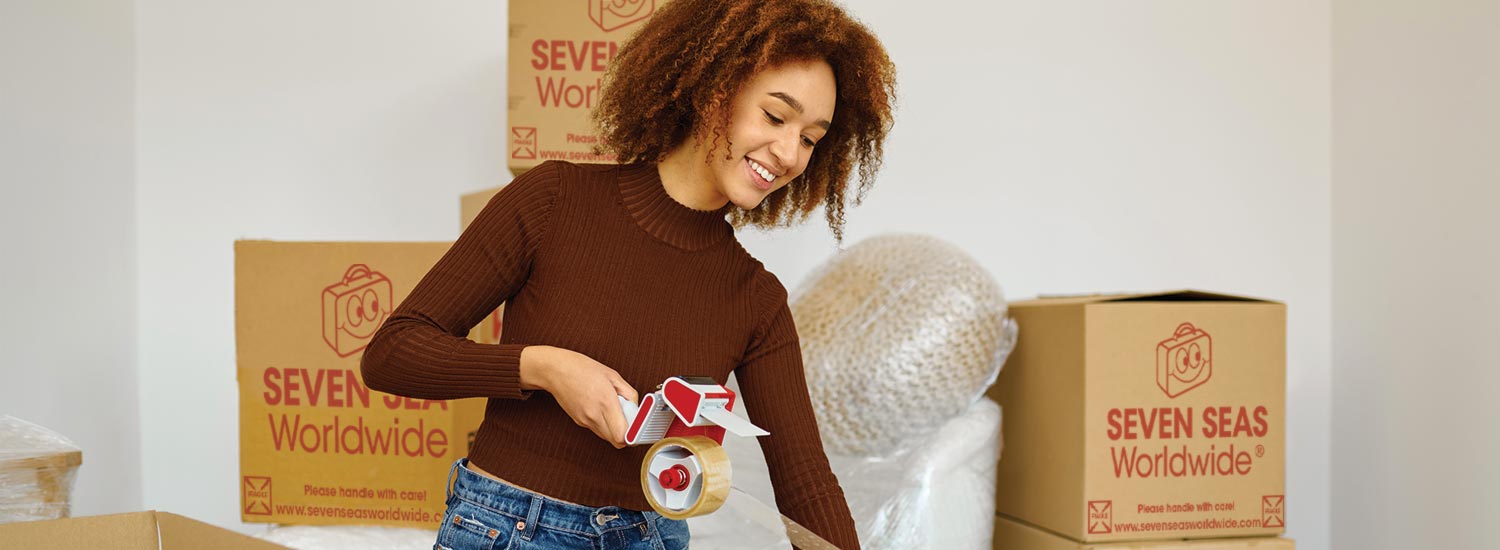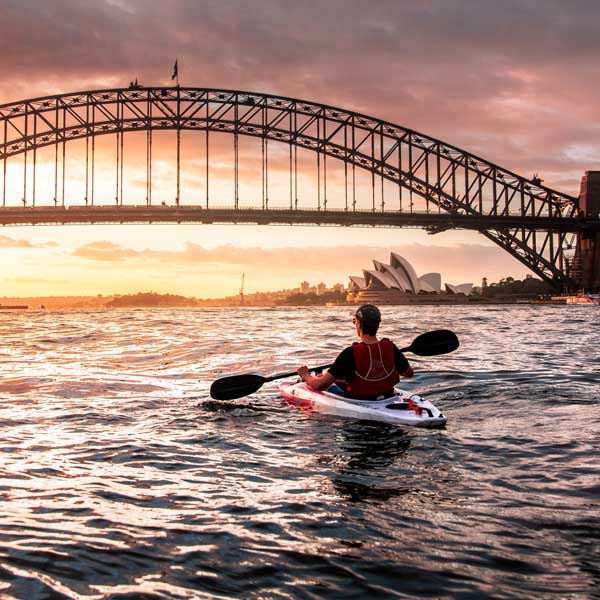Before packing, check this list of items prohibited from entering a particular country or region.
Key takeaways
- Australia is a good country to live, thanks to its high living standards, beachside cities, friendly population, and thriving economy.
- Living in Australia is sun-drenched, safe, and easy-going, with plenty of time spent exploring the Great Outdoors, enjoying time with family and friends, and working flexibly.
- The pros and cons of living in Australia include its strong economy, friendly people, isolated location, and high cost of living.
Is Australia a good country to live in 2026?
Australia is a good country to live in 2026, thanks to its high living standards, beachside cities, friendly population, and thriving economy. The country offers excellent healthcare, well-regarded education, and numerous job opportunities, particularly in major cities such as Sydney, Melbourne, and Brisbane. Other top reasons people move to Australia include year-round sunshine, world-renowned beaches, and relatively low crime rates, which offer a safe and stable environment in which to raise a family.
What is it like to live in Australia?
Living in Australia feels sun-drenched, safe, and easygoing. Thanks to typically warm weather, daily life revolves around the outdoors, with friends and family spending quality time at the beach, in parks, or hosting garden barbecues. The pleasant climate also encourages an active lifestyle, with many people spending their free time swimming, surfing, cycling, or going for bushwalks.
Crime rates are mostly low to moderate, according to the user-generated global database Numbeo's 2026 findings. The country scores notably well on the questions "Are you worried about being mugged?" (40% yes), "Are you worried about being subject to a physical attack?" (33% yes), and "Is there a problem with corruption?" (37% yes). Only one question scored high: "Has crime increased in the last 5 years?" (66% yes). The safest Australian cities, according to Numbeo's Crime Index, are Canberra, Adelaide, Sydney, Hobart, and Brisbane.
Some expats may view the work culture as too laid back. However, it reflects more cultural differences than laziness. Australians' informal, flexible workplaces are also fair, direct, and emphasise work-life balance. According to the latest Michael Page Talent Trends report, 90% of Australian professionals prioritise work-life balance over any other workplace factor. Outside of work, Aussies' easygoing attitude extends to self-deprecating or gentle ribbing humour, sociability, and a welcoming attitude to outsiders.
Living in Australia feels sun-drenched, safe, and easygoing.

Is Australia a good country to study?
Australia is considered a good country to study, thanks to its high-ranking universities, diverse courses, and innovative teaching methods, such as inquiry-based learning and flipped classrooms (which involve home-based learning followed by in-class discussions and collaboration).
Primary and secondary institutions offer extensive support for newcomers, including orientation programmes, mentoring, and career services. International university students benefit from a multicultural environment, modern facilities, and robust research opportunities, particularly in fields such as medicine, engineering, and environmental science.

Pros and cons of living in Australia
The pros and cons of living in Australia include its strong economy, friendly people, isolated location, and high cost of living. There are many factors to consider before you and your family make a decision as significant as moving to Australia.
Keep reading for our reasons for and against moving to the Land Down Under:

Positives
Stable economy:
The country boasts a low unemployment rate of 4.2%* and competitive, growing wages. Job opportunities in Australia for 2026 are positive, with the country's largest employers, including those in the public sector, charity work, healthcare, and community services. Financial security allows residents to save, invest, and enjoy high living standards.
Affordable healthcare:
Medicare, the public health insurance program, provides residents with free or low-cost medical treatment. Hospitals are modern, well-staffed, and efficient. Private health insurance complements Medicare by offering shorter wait times, specialist services, and access to private facilities. Preventive care is encouraged via public health campaigns.
Friendly locals:
Aussies are laid-back, welcoming and love a bit of friendly banter. The government promotes community engagement and social inclusion, and neighbours tend to look out for each other. Local clubs, events, and volunteering make it easier for newcomers to make friends and get involved in community life.
Quality education:
Public and private schools offer state-of-the-art facilities, diverse programs, well-trained teachers, and extensive support services, including counselling and career guidance. Five universities, including the University of Melbourne, Monash University, and the University of Sydney, rank among the top 80 in the 2026 Times Higher Education rankings.
It's a natural playground:
Australia's diverse landscape, ranging from beaches and mountains to bushland and rocky ranges, is ideal for exploration and outdoor sports. Outdoor recreation, including swimming, hiking, and surfing, is accessible year-round, and protected areas and national parks help preserve the natural environment. This promotes a healthy, active lifestyle and offers numerous opportunities for family-friendly adventures.

Negatives
Cost of living is high:
Rent, groceries, and utilities are relatively expensive, particularly in major cities such as Sydney and Melbourne. Australia's housing market remains notoriously expensive in 2026, with property prices in major cities often out of reach for first-time buyers. However, wages are generally high and continue to grow year on year.
Distance from other countries:
Australia's geographic isolation makes travelling abroad expensive and time-consuming. Flights to Europe, North America, or large parts of Asia take many hours. Such distances could affect visits from family, flights back home, holidaymaking outside Australia, and overseas business trips.
Not everyone can handle the climate:
Certain regions across the country, given their vast size, experience extreme heat, droughts, or flooding. Northern areas are prone to cyclones, while summer bushfires are common in the southern and eastern states. In many inland and northern regions, temperatures can soar above 40°C in the summer, so be sure to pack some sunscreen.
Getting around may be difficult:
Around 90% of Australia's landmass is sparsely populated, with limited public transport options outside major cities. Most of the population lives along the eastern and south-eastern coasts. However, even relatively close cities, such as Sydney and Melbourne, take over nine hours by car.
Creepy crawlies!:
Australia is home to many venomous snakes, spiders as big as your hand, and jellyfish — a risk in the city and outback. Authorities advise taking precautions, particularly when hiking, swimming, or camping. Although encounters are rare, it's essential to stay safe and remain vigilant about your surroundings at all times.
*figures as of 2026
Can over 50s move to Australia?
Over-50s can move to Australia, provided they meet Australian visa and health requirements. Many older people at or near retirement move for the warm climate, safe streets, and slower pace of life. Australia has strong support networks for older residents, including active seniors' clubs, community centres, and volunteer programmes that encourage social engagement. Many individuals over 50 opt for smaller cities and regional towns, drawn by more affordable housing, smaller communities, and easy access to nature.
However, age may affect visa eligibility, especially for those applying on the point-based Skilled Migration program. The younger you are, the more points your application gains. Skilled migration visas currently offer 0 points for those aged 45 and older. Popular options for older applicants include being nominated by an Australian employer, filling a skilled role in demand, starting a business, or joining an Australian family.












